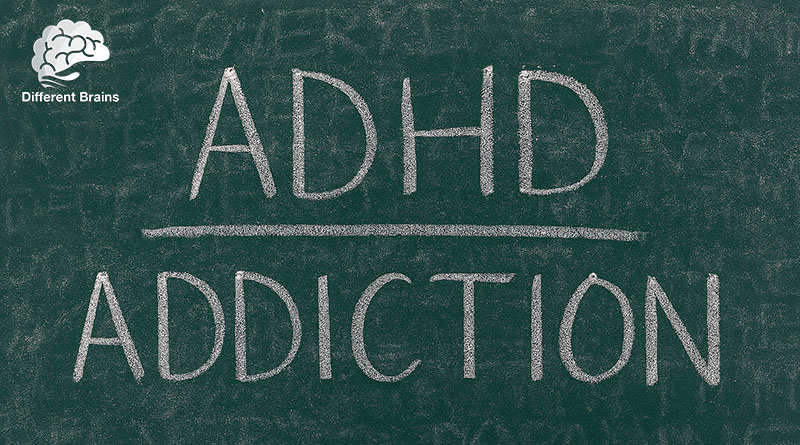By Jane R. Whitman
Where ADHD and Addiction Overlap
Some minds race faster than others. When a person lives with ADHD, the world feels louder, messier, and more chaotic. Recovery, with its tight steps and steady rhythm, can feel like walking a narrow trail in the dark. Understanding how ADHD and addiction recovery connect helps people build a path that doesn’t ignore their wiring. This article explores where the two conditions intersect, where the trouble begins, and where support makes all the difference.
Understanding ADHD and Addiction
ADHD brings its own weather. Impulsivity strikes like a summer storm. Focus drifts like smoke. Emotional surges crash in and flood everything. These patterns don’t come and go. They follow a person through each stage of life, sometimes unnoticed, sometimes overwhelming. Addiction, meanwhile, reshapes thought, habit, and need. It reshuffles priorities and strips away choice.
ADHD and addiction involve overlapping brain systems, especially dopamine-related pathways. Dopamine regulation, for one, ties them together. That overlap helps explain why people with ADHD face a greater risk of substance use. Substances soothe the noise, slow the rush, sharpen the dull edges. Until they don’t. When recovery begins, ADHD symptoms usually persist and may complicate progress.
Tools That Help With Both Challenges
The path forward does not require perfection. It requires support that fits. Structure helps. Creating daily routines, setting small goals, and using visual reminders can ground a wandering mind. Apps with reminders, notebooks with checklists, and support from peers all matter.
Therapy matters more. In fact, therapy remains an irreplaceable part of rehabilitation for those managing both ADHD and substance use. Cognitive behavioral therapy (CBT) helps break cycles of self-defeating thought. Dialectical behavior therapy (DBT) builds emotion regulation and interpersonal skills and shows promise for people in recovery. ADHD coaching or executive function training may help address gaps in recovery programs.
Peer support offers another layer. When someone says, “I get it,” the listener feels less alone. ADHD groups that focus on addiction recovery build bridges where shame once stood. These spaces let people speak without translating their struggle. That freedom builds trust. And trust builds momentum.
Medication also plays a role. Stimulants can help manage ADHD, but require careful monitoring during recovery. Working with specialists who understand both conditions can help create safe, effective plans. These plans should evolve with progress and setbacks, not punish them.
Why ADHD Symptoms Disrupt Recovery
Impulse control slips when the frontal cortex struggles. For someone in recovery, that slip can feel like sabotage. One impulsive act can restart the entire cycle. ADHD makes waiting hard. It makes sitting still feel like punishment. Recovery tools often depend on patience, planning, and presence. But those tools don’t always fit the ADHD brain.

Missing appointments, skipping medication, losing track of days—these aren’t signs of weakness. They’re symptoms. But in the context of recovery, they can seem like excuses or a lack of effort. That misreading strains trust between the person and their support system. The work becomes harder.
Emotional regulation matters too. People with ADHD may feel everything at once or nothing at all. That flood or freeze can cause panic, shame, or shutdown. Traditional recovery programs may not have space for that kind of emotional swing. When the system can’t flex, the person bends too far and breaks.
Living With Both: The Weight and the Stigma
Carrying ADHD and addiction together often means carrying more than symptoms. It means carrying a misunderstanding. Society frames ADHD as childish and addiction as self-inflicted. Put them together, and the weight doubles. A person may feel broken twice.
Mental health challenges don’t come with clear labels. Some people don’t even know they have ADHD until they hit a wall in treatment. They think recovery alone should fix the chaos. When it doesn’t, they blame themselves. That blame builds isolation. And isolation feeds relapse. So, you need a safe space for recovery in the long run.
Support from others sometimes fades, too. Friends may not understand. The family may grow tired. Therapists and group leaders may miss signs. Without a clear plan that addresses both issues, the person drifts. The recovery boat leaks from holes that no one patched.
A Real Life Tangle of ADHD and Addiction Recovery
Picture a person in early recovery. They attend meetings, take prescribed meds, and try to stay clean. But they forgot a meeting. Then two. They get distracted during group therapy. They feel ashamed when someone points it out and start to think recovery isn’t for them. It feels designed for someone else.
That person isn’t lazy. They’re managing two fires at once. When the treatment plan finally includes ADHD, things shift. The new routine fits better. The person still struggles, but now they understand why. And when understanding enters the picture, shame exits.

This isn’t a rare story. Many people with ADHD enter recovery with hope, only to find confusion waiting. They need a system that sees them fully.
Risks Along the Way
Recovery isn’t smooth. It’s full of sharp turns and steep drops. For those with ADHD, these turns come faster and feel harder. Overcommitting leads to burnout. Trying to do too much at once backfires. A better approach uses small steps and simple wins.
Some symptoms of ADHD may be mistaken for relapse. A missed call, a late arrival, a forgotten detail—these can seem like signs of slipping. But context matters. When support teams understand ADHD, they respond with compassion, not suspicion.
Neglecting basics also hurts progress. Sleep, nutrition, and movement anchor the mind. ADHD often disrupts those rhythms. Recovery helps restore them. But it takes time.
A Note of Encouragement
There is no one way to heal. But many ways exist. ADHD makes recovery harder, yes. But it doesn’t make it impossible. In fact, the same traits that complicate things—creativity, energy, resilience—can become tools. The same brain that stumbles can also stand.
Recognizing the link between ADHD and addiction recovery is the first step. Building plans that honor both paths keeps people moving. This process takes patience. It takes flexibility. And above all, it takes belief. With the right support, people with ADHD don’t just survive recovery. They can thrive in it.
Understand the Conditions
Living with both ADHD and addiction recovery challenges means walking two winding paths at once. Each step takes effort, and each misstep teaches something. The brain that struggles to focus is the same brain that fights to heal. Tools like therapy, structure, and peer support create traction where the road slips. By understanding how the conditions connect, recovery becomes more honest—and more effective.

